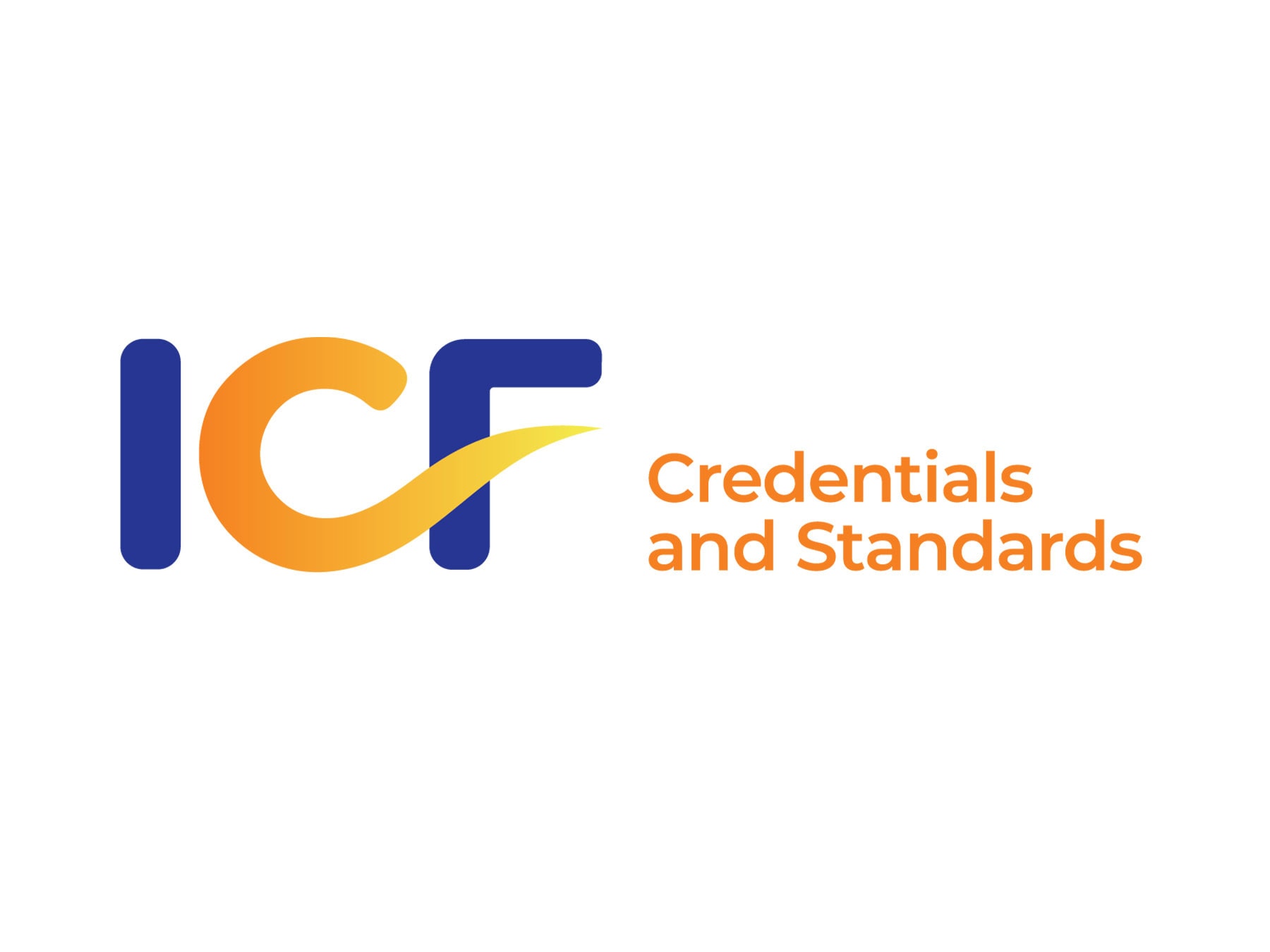Honing Your Skills With Mentor Coaching
Mentor coaching is a collaborative process where you review and reflect on your coaching while you receive valuable feedback, guidance, and support from a more experienced coach. It’s your chance to sharpen your skills through meaningful conversations and real-time feedback.
This relationship, which can take place in one-on-one or group settings, typically includes feedback on your performance and discussions around coaching practices. While the primary focus is on mastering the ICF Core Competencies, mentor coaching also helps you develop your unique coaching style and enhance your overall technique. It’s a powerful way to elevate your practice and grow as a confident, skilled coach.
Credentialing Requirements for Mentor Coaching
Are you working toward your Associate Certified Coach (ACC), Professional Certified Coach (PCC), or Master Certified Coach (MCC) credential? If so, mentor coaching is an essential step on your journey. Before submitting your application, you’ll need to receive 10 hours of mentor coaching over at least three months with a qualified mentor coach.
For many, this requirement is built right into their coaching education program. If that’s not the case for you, don’t worry. We’ve detailed all you need to know to meet the mentor coaching requirement as part of your credential application.
While mentor coaching isn’t required for the Advanced Certification in Team Coaching (ACTC), it’s still a great way to refresh your skills and deepen your understanding of the ICF Core Competencies.
Benefits of Mentor Coaching
Mentor coaching provides you with expert guidance to refine your coaching craft and enhance your professional growth. It’s key to building credibility, deepening your understanding of ethical standards, and applying the ICF Core Competencies with confidence.
Here’s what you’ll gain from the experience:
- Skill Development: Refine your coaching techniques aligned with the ICF Core Competencies for more impactful sessions.
- Actionable Feedback: Receive personalized insights from a seasoned mentor to guide your growth.
- Increased Confidence: Strengthen your self-assurance as you master professional coaching standards.
- Ongoing Growth: Stay current with the latest coaching practices and methodologies.
- Commitment to Excellence: Regular mentor coaching ensures you maintain a focus on delivering high-quality results for your clients.
Expand Your Horizons Through Coaching Supervision
Coaching supervision is your opportunity to hit "pause" and reflect deeply on your coaching journey. It's like having a trusted guide who helps you explore new perspectives, work through challenges, and elevate your practice to the next level.
While mentor coaching zooms in on fine-tuning your skills in relation to the ICF Core Competencies, coaching supervision takes a broader, more holistic view of your coaching. It invites you to reflect on the emotional complexities, ethical decisions, and the depth of your client relationships. Through real-life case discussions and constructive feedback, you'll gain fresh insights, navigate tough dilemmas, and continue growing as a confident, thoughtful coach.
Certification Requirements for Coaching Supervision
Are you an ACC, PCC, or MCC looking to specialize in team coaching? To apply for the Advanced Certification in Team Coaching (ACTC), you'll need at least five hours of coaching supervision. Depending on your team coaching education, this may already be part of your program. If not, we’ve detailed all you need to know to meet the coaching supervision requirement as part of your ACTC application.
While coaching supervision isn't required to apply for ACC, PCC, or MCC credentials, it’s a powerful tool to help you develop more holistically as a coach.
Benefits of Coaching Supervision
Think of coaching supervision as your personal coaching GPS — it keeps you on track, helps you navigate challenges, and gets you where you want to go as a coach. Whether you’re enhancing your practice, boosting confidence, or leveling up professionally, coaching supervision supports you in becoming the coach you’re meant to be.
Here’s how it benefits you:
- Ethical Assurance: Tackle tough situations and ethical dilemmas in a safe, confidential space, ensuring your practice aligns with coaching best practices and ethical standards.
- Personal Reflection: Supervision invites deep reflection on your emotions, biases, and assumptions, helping you grow personally and professionally. It’s key to staying balanced, authentic, and avoiding burnout.
- Improved Client Outcomes: By reviewing client cases and discussing strategies, you not only enhance your ability to support clients in achieving meaningful results, but you also become better at handling challenging situations.
- Increased Confidence: Regular supervision helps you build confidence in your decision-making, methods, and professional conduct. This added confidence can lead to more effective and impactful coaching.
- Support and Well-Being: Supervision offers a space for you to debrief emotionally and seek support, which can help reduce the stress and isolation often felt in the coaching profession. It helps ensure that you are at your best to serve your clients.
Additional Ways to Grow
Your development as a coach doesn’t have to stop with mentor coaching and coaching supervision. Try additional growth opportunities like the following:
- Peer Coaching: Give coaching and get it in return. Peer coaching allows you to practice your skills, learn fresh approaches, and gain self-awareness — plus, you can count these hours toward the Coaching Experience requirement for your ICF credential.
- Communities of Practice: Join a community of coaches to share best practices, emerging trends, and tools. It’s a great way to stay ahead of the curve while deepening your expertise in specific coaching areas.
- Events, Webinars, and More: Tap into a wealth of learning opportunities — from webinars to events — on a variety of coaching topics. These sessions offer valuable insights to continue your professional growth.
- ICF Membership: Grow with a global network of like-minded individuals who are committed to excellence, learning, and connection. ICF membership gives you access to exclusive resources, networking opportunities, and support to help you thrive at every stage of your coaching journey.

How to Get Started With Your Coaching Credential
Mentor coaching and coaching supervision are key steps on your path to earning an ICF credential or certification — and they’re right in the heart of the process!
- Just getting started? Begin by exploring all the options available to you as you set the foundation for your journey.
- Ready for the next step? If you’re in the thick of preparing your application, now’s the perfect time to dive deeper and gain clarity on what’s required.
- Almost there? If you’ve submitted (or are about to submit) your application, check out what comes next with the ICF Exams.
Resources to Guide Your Journey
We understand that the path to your ICF credential or certification can feel like a lot to navigate. These resources are here to light the way and help you stay on course every step of the way.
Credentialing Webinar Series
The credentialing webinar series is designed to support chapters in promoting the value of ICF credentials and providing information on the ICF credentialing process. Chapters advertising this series will fulfill the credential awareness campaign requirement in their annual activity reports.
Understand the Process: From ICF Core Competencies to the Updated Credential Assessment
This webinar provides an inside look at the ICF Core Competencies update and the development of a new credentialing exam. Beginning in 2017, ICF conducted a comprehensive job analysis to redefine the Core Competencies from a “clean slate” perspective, reflecting current coaching practices. This six-year process, involving professional coaches as subject-matter experts, led to updated Core Competencies and new written and performance exams across all credential levels, emphasizing academic rigor and professional relevance.
